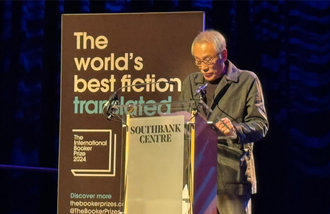All N. Korea's vessels, planes carrying freight to be intercepted
All N. Korea's vessels, planes carrying freight to be intercepted
Posted February. 26, 2016 07:24,
Updated February. 26, 2016 07:46
The U.S. and China agreed to the first draft of UN Security Council resolution to impose sanctions against North Korea on Wednesday. Chinese foreign minister Wang Yi, who is on a U.S. tour, and US national security advisor Susan Rice signed the draft resolution on sanctions against Pyongyang at the White House on the day, and circulated it to the permanent members of the UNSC.
The UN Security Council will hold a general meeting at 3 p.m. on Thursday, and review the draft, before deciding whether to adopt the resolution or not, according to Reuters.
The draft, which is yet to be publicized, reportedly contains strong measures designed to control all economic activities that could be potentially used directly or indirectly for weapons development. Analysts say that if adopted by UNSC, the resolution will effectively constitute ‘agreement to blockade North Korea.’
Sanctions that are discussed at the U.N. include ban on export of military aircraft fuel, ban on import of natural resources’ from North, strengthening of inspection into suspicious North Korean vessels, and expansion of organizations and figures subject to sanctions. However, Kim Yo Jong, North Korean leader Kim Jong Un’s younger sister who was mentioned as a figure subject to sanctions, has been reportedly excluded from the list, while organizations with the North’s Reconnaissance Bureau that controls spying of South Korea have been included.
On whether to ban North Korean airplanes’ flying over South Korean airspace, a source in Seoul’s foreign ministry said, “The measure will not be applicable to civilian planes, and fine-tuning will be necessary, including restriction of the ban to freight airplanes carrying suspicious freight.”
Soon after the adoption of UN resolution on sanctions, South Korea will start imposing its own sanctions. A source at the Seoul government said, “We have been adjusting our schedule by judging that if South Korea moves far ahead of others, it will stimulate neighboring countries, which could affect the severity of the U.N. sanctions against Pyongyang.” South Korea had not taken extra measures after starting public debate on the possible introduction of THAAD on February 7, and complete suspension of the inter-Korean Kaesong Industrial Park on February 10.
South Korea’s highly probable measure of independent sanctions against the North is to ‘ban all vessels that visited North Korea from entering South Korean ports. Thus far, the South only banned certain North Korean vessels that were subject to U.N. sanctions from entering South Korean ports. Japan imposed ban to block third country vessels that enter North Korea from entering Japanese ports on February 10. A source in the South Korean government said, “If South Korea and Japan, which account for majority of freight in Northeast Asia, ban entry of such vessels, it will effectively result in halting of all trade with North Korea.” Chun Young-woo, former presidential secretary for foreign affairs and national security, said, “Even if foreign vessels did not enter North Korean ports, the South should ban vessels that are carrying transit freight from North Korea from entering South Korean ports.”
Another source in Seoul said, “There are already many North Korean vessels that navigate across the Jeju Strait without notifying South Korea. Maritime check and inspection to control their navigation will also be beefed up.” In addition, measures to block all means used by North Korea to earn foreign currency will also be put in place. The South will strengthen cooperation with the European Union, which has yet to propose measures of its own independent sanctions, and cooper
조숭호기자 shcho@donga.com · 워싱턴=박정훈 특파원sunshade@donga.com







